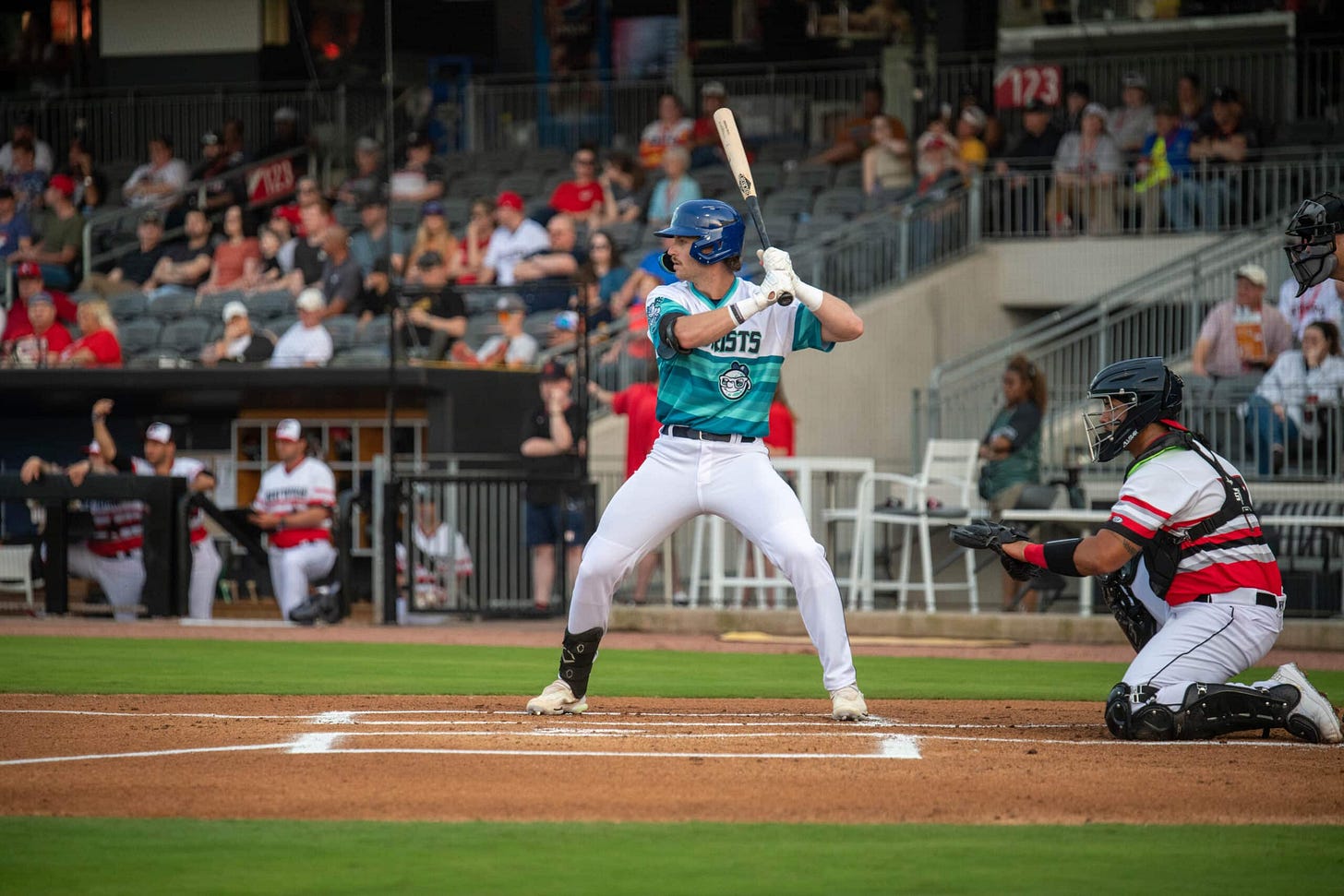Will 'Business as Usual' Continue in the Astros Farm System
The Astros have built a dynasty be developing their own core then a replacement for it. But a look at their current farm system raises doubts about their ability to do it a third time.
“It was business as usual” for the Astros player development system in 2023, wrote Jim Callis. And since Callis was writing this in an article about the Astros top 30 prospects, he’s not just referring to the seventh straight trip to the ALCS.
“Their farm system once again languished in the bottom of every media ranking yet continued to churn out talent and produced a player who received a Rookie of the Year vote for the fifth straight round of balloting, this time Yainer Diaz.”
Callis is writing about the extraordinary success of the Astros player development system, which is the biggest reason that te team began dominating the AL West in 2107, and, just as importantly, why it has continued for so many years.
After the 2022 World Series victory, I wrote that “the development of a new young core of players…has allowed the team to sustain excellence from the first title to the second.” Between 2017 and 2022, the Astros lost Gerrit Cole, George Springer, Dalles Keuchel and Carlos Correa to free agency. But the team maintained itself at the top of the American League by developing a new core of young stars—Yordan Alvarez, Kyle Tucker, Framber Valdez, Cristian Javier.
In addition to those stars, the team has developed starters such as Luis Garcia, Chas McCormick, Jeremy Pena, and key reliever Bryan Abreu. In 2023, the Astros developed Diaz into a top hitting catcher, and he has earned the starting job in 2024. The also brought rookies Hunter Brown and JP France into their starting rotation, and they earned return assignments in 2024.
In short, the player development machine has continued despite big free agent losses.
Any Future Stars on the Horizon?
But as the team enters 2024, it is unclear that the Astros impressive ability to develop young players will continue as it has in recent years.
As the team enters 2024, there is no realistic candidate to continue the team’s run of Rookie of the Year vote recipients. Heck, there aren’t even many realistic candidates to be eligible for the award.
The Astros projected 26-man roster at Roster Resource features no rookies. The only potential rookies who could make the Opening Day roster (Trey Cabbage, Joey Loperfido, Forrest Whitley, Shawn Dubin) would be in last man on the bench or long relief roles.
The good news for 2024 is that the lack of rookie contributors does not look to be a big issue for the team. The Astros are very set in their most important positions and are not relying on any of their prospects for key roles.
But looking forward to the future, the lack of young prospects is worrisome. The Astros farm system is poorly regarded by those who closely examine these things. The MLB Pipeline rankings, run by Callis and his colleagues, have the Astros ranked 27th best in the majors, the same as Keith Law at The Athletic. Baseball America and Fangraphs have them ranked even lower at 29th.
The Astros only had one player make one list of the Top 100 prospects in the game (Zack DeZenzo was 40th on Baseball Prospectus’s list). In short, the Astros do not have any promising players who look to join the team this season.
There are a couple of rays of hope. Most evaluators are pretty high on Jacob Melton, who was rated as just outside the Top 100 by both Law and Callis and his colleagues at MLB Pipeline. He could be a candidate to take over an outfield job next year, if he has a productive 2024 in Corpus Christi.
Further away from the majors, the most exciting prospects in the Astros system are a couple of very young international signings. Luis Baez just turned 20 this Winter and is rated as the team’s second best prospect by MLB Pipeline. He just turned and has shown excellent power in the Domincan Summer and Florida Complex Leagues. He earned a late season promotion to Single A ball last year.
The team’s other young power prospect is Waner Luciano, who was “already producing average exit velocities by big league standards” at the age of 18 in the Florida Complex League last year, according to MLB Pipeline. With more development, these players could develop into Top 50 prospects, but both are still multiple years away from the majors.
But outside of those three, the Astros have a lot of prospects whose ceiling seems to be back of the rotation starters and platoon bats. Those types of players are of course helpful, but with players such as Framber Valdez, and Kyle Tucker about to reach free agency, none seem to be the type of replacements like those two were for departed stars like Gerrit Cole and George Springer.
Can the Astros Exceed Expectations Again?
Unless, the Astros prospects can exceed expectations. Which they have done before. Law wrote that the Astros “have continued to get more out of players who look like they’ll be fringe major-leaguers — getting 3.6 WAR from Chas McCormick, who was never close to any of my top 100s, is fantastic work all around. Maybe that means they get a Jacob Melton or a Zach Dezenzo to their 90th percentile outcome.”
Can the Astros get more from their prospects than expected. It is what they have done in recent years with players like Valdez, Javier, and Pena. None of those three were highly regarded as amateurs and none were top prospects, but all were developed not only into high quality regulars, but the top players during the 2022 World Series.
The Astros have exceeded expectations from their farm system before. It looks like they will need to do it again.




